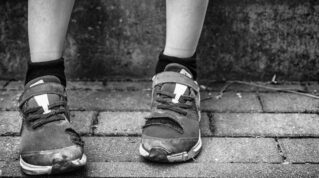Politicians are being urged to focus on combatting wider societal issues after two global reports revealed worrying child poverty levels in England.
This year’s Programme for International Student Assessment (PISA) league tables showed about one in 10 youngsters skipped meals at least once a week because they didn’t have enough money.
This is on par with countries including Mexico and Moldova, and above the OECD average of 8.2 per cent.
A Unicef study, also published this week, found UK child poverty levels have leapt by about 20 per cent between 2012 and 2021.
Despite this, England’s overall PISA attainment scores have held up better than other countries’.
‘Help schools focus on education’
But Loic Menzies, the Centre for Education and Youth’s former CEO, added: “The million-dollar question is: how good would those results be looking if we were prioritising other aspects of young people’s lives?

“If schools were just concentrating on education, then they’d be able to do so much more. We should be aware of the weight of responsibility this puts on them.”
PISA compared countries across the globe on their youngsters’ attainment in maths, reading and science.
Results for most countries fell after the Covid pandemic, but England’s held up better in maths – seeing the country rise to 11th in the world out of 81 that took part.
But the food poverty findings show the government has “completely under prioritised all the other dimensions of childhood”, added Menzies.
Large numbers experiencing food poverty
He pointed to benefits caps introduced six years ago that would restrict tax credits and universal credit support to two children per family, which he said “punished young people for their parents’ fertility”.
As part of the PISA research, children were asked how often they did not eat because there was not enough money to buy food in the last month. About 5 per cent answered “every day or almost every day”, while a further 5 per cent said between once and five times a week.
Figures for the whole of the UK (10.5 per cent) were worse than those reported in Serbia, Mexico, Moldova and Brazil.
Alfonso Echazarra, an analyst at the Organisation for Economic Co-operation and Development (OECD) which runs PISA, said the numbers are “actually a relatively large proportion for an OECD country”.
“We always have to bear in mind that this information comes from students,” he added.
‘When you’re hungry, you can’t learn’
“But it’s incredibly relevant and it’s very policy relevant because it’s something that, you know, countries and government can do a lot to solve.”
Speaking on Tuesday, children’s commissioner Dame Rachel de Souza threw her weight behind the breakfast club model, noting “when you’re hungry you can’t learn”.
Many schools already provide breakfast clubs, either from their own budgets or with food provided through the government’s national school breakfast scheme.
“We’ve got truly disadvantaged groups now, like asylum seeking children and children whose families are falling into poverty even though they’re working.
“And we really need to rocket booster support for them to enable them to engage with education. So, I applaud the breakfast club model.”
Unicef report lays bare child poverty rise
Labour committed last year to providing free school breakfast clubs for all primary school pupils if it wins the next election, at a cost of £365 million.
Bridget Phillipson, the shadow education secretary, announced that the “fully funded” scheme would be rolled out to every primary school in England.
She said it would be the “first step on the road to a modern childcare system” and would “drive up standards in maths, reading, and writing” while also taking pressure off parents.
Meanwhile, Unicef’s newly published report, entitled ‘child poverty in the midst of wealth’, stated “many more” UK youngsters “lived in poor households in 2021 than a decade earlier”.
Child income poverty rates among many minority ethnic groups – Bangladeshi, black, Chinese, “mixed”, Pakistani and “other” – “are more than twice as high” than for those defined as white British.
UK ranked third bottom in poverty table
The UK’s 20 per cent increase in child poverty was the largest among high-income and upper middle-income countries in the EU and the OECD.
“The UK and Hungary both reduced their expenditure on child and family benefits relative to the size of their economies and child populations,” the Unicef report read.
“Engrained experiences of poverty throughout childhood can be associated with particularly negative outcomes for children, exacerbating the disadvantages that poverty already creates.”
The charity’s “report card 18”, a ranking of countries based on their latest child income poverty levels and the proportional change in that rate, graded the UK third from bottom, only ahead of Turkey and Colombia.
The Department for Education has been approached for comment.















Your thoughts